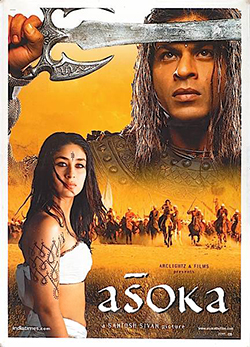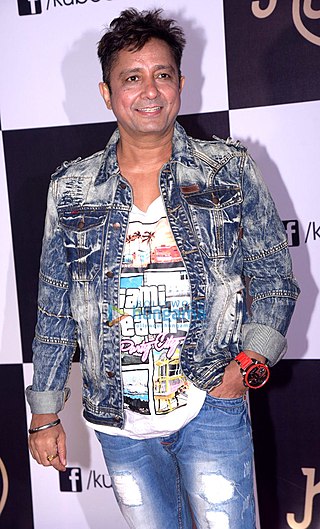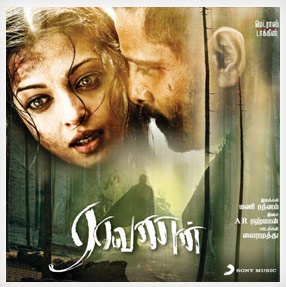
Allah Rakha Rahman is an Indian music composer, record producer, singer, songwriter, musician, multi-instrumentalist and philanthropist, popular for his works in Indian cinema; predominantly in Tamil and Hindi films, with occasional forays in international cinema. He is a winner of six National Film Awards, two Academy Awards, two Grammy Awards, a BAFTA Award, a Golden Globe Award, fifteen Filmfare Awards and seventeen Filmfare Awards South. In 2010, the Indian government conferred him with the Padma Bhushan, the nation's third-highest civilian award.

Sayyid Abdullah Shah Qadri, known popularly as Baba Bulleh Shah and Bulleya, was a 17th and 18th-century Punjabi revolutionary philosopher, reformer and a Sufi poet, universally regarded as the "Father of Punjabi Enlightenment". He spoke against powerful religious, political and social institutions. He lived and was buried in Kasur.

As̅oka is a 2001 Indian Hindi-language epic historical drama film directed and co-written by Santosh Sivan. It is a dramatized version of the early life of emperor Asoka, of the Maurya Empire, who ruled most of the Indian subcontinent in the 3rd century BCE. The film stars Shah Rukh Khan as the titular character alongside Kareena Kapoor, Rahul Dev, Danny Denzongpa, Hrishitaa Bhatt, and Ajith Kumar in a special appearance. It was produced by Khan, Juhi Chawla and Radhika Sangoi. The screenplay was written by Santosh Sivan and Saket Chaudhary and the dialogue by Abbas Tyrewala. It was originally released as Ashoka: The Great in India.

Dil Se.. is a 1998 Indian Hindi-language romantic thriller film written and directed by Mani Ratnam who produced it with Ram Gopal Varma and Shekhar Kapur. Set against the backdrop of Insurgency in Assam, the film stars Shah Rukh Khan and Manisha Koirala, while Preity Zinta makes her film debut in a supporting role. An example of parallel cinema, it is noted as the final installment in Ratnam's trilogy consisting of Roja (1992) and Bombay (1995). The film's soundtrack album, composed by A. R. Rahman, sold six million units in India.

Malaika Arora is an Indian actress, dancer, model, VJ and television personality who appears in Hindi-language films. She made her debut as a film producer in 2008 with her former husband Arbaaz Khan, founding the company Arbaaz Khan Productions, which created the Dabangg film series. As an actress, she has starred in films like Kaante (2002) and EMI (2008). She also performed in the songs Chaiyya Chaiyya (1998), Gur Naalo Ishq Mitha (1998), Maahi Ve (2002), Kaal Dhamaal (2005) and Munni Badnaam Hui (2010).

Sukhwinder Singh is an Indian playback singer who primarily sings Bollywood songs. He sang "Jai Ho" in the film Slumdog Millionaire, for which he won a Grammy Award for Best Song Written for a Motion Picture, Television or Other Visual Media. He has also received two Filmfare awards for his singing.

Gulzar is an Indian Urdu poet, lyricist, author, screenwriter, and film director known for his works in Hindi cinema. He is regarded as one of greatest Urdu poets of this era. He started his career with music director S.D. Burman as a lyricist in the 1963 film Bandini and worked with many music directors including R. D. Burman, Salil Chowdhury, Vishal Bhardwaj and A. R. Rahman. Gulzar also writes poetry, dialogues and scripts. He directed films such as Aandhi and Mausam during the 1970s and the TV series Mirza Ghalib in the 1980s. He also directed Kirdaar in 1993.
"Jai Ho" is a song composed by A. R. Rahman for the 2008 film Slumdog Millionaire. When Danny Boyle, the director of Slumdog Millionaire, approached Rahman to compose its soundtrack, he included the song. "Jai Ho" accompanies a choreographed dance sequence at the end credits of the film. Indian singer Tanvi Shah wrote and provided vocals for an English section of the song. "Jai Ho" is a phrase which can be roughly translated as "Let [the] victory prevail", "Let there be victory", or "May there always be victory".
Sapna Awasthi Singh is a Bollywood playback singer best remembered for her "Chaiyya Chaiyya" from Dil Se.. (1998) and "UP Bihar Lootne" from Shool (1999).

The X class is a metre gauge 0-8-2RT rack and pinion compound locomotive used by the Nilgiri Mountain Railway in the Nilgiri Hills of southern India. They are used on the 28-kilometre-long (17 mi) section between Coonoor and Mettupalayam, where the line reachees a gradient of 8%. The railway uses the Abt system on these steep sections. The locomotives have two high-pressure and two low-pressure cylinders, located outside the locomotive's frames. The low-pressure cylinders drive the rack gears, and are positioned above the two main high-pressure cylinders which drive the main wheels.

Guru is the soundtrack to the 2007 film directed by Mani Ratnam. The soundtrack was released on 18 November 2006. The film's music is composed by A. R. Rahman with lyrics provided by Gulzar.

Raavan is the soundtrack composed by A. R. Rahman, who accompanied for the music and background score for the 2010 Hindi film of the same name, directed by Mani Ratnam. It was released on 24 April 2010, by the label T-Series. The soundtrack features six songs, with four additional tracks included in the film were released later; the lyrics being penned by Gulzar. The same soundtrack was used for the Tamil version of the film, titled Raavanan as well as the Telugu dubbed version, titled Villain.

Raavanan is the soundtrack album composed by A. R. Rahman, who accompanied for the music and background score for the 2010 Indian Tamil film of the same name, written and directed by Mani Ratnam. The film marks Rahman's second collaboration with actor Vikram after Pudhiya Mannargal (1994). The soundtrack album was released by Sony Music India on 28 May 2010.
Tere Ishq Nachaya is a Punjabi Sufi song composed by 18th-century mystic-poet Baba Bulleh Shah. It is a popular song performed by Sufi and qawwali singers, including Abida Parveen and also featured in Sufi music album, Sufi –Ishq Bada Bedardi.
Naveen Kumar is an Indian flautist who has accompanied many film music directors and composers on popular Bollywood tracks. Naveen has also directed music for Gospel recordings. He is known for playing flute in Bombay themes and Kal Ho na Ho

Jab Tak Hai Jaan is the soundtrack album, composed by A. R. Rahman, to the 2012 Hindi film of the same name, directed by Yash Chopra that stars Shahrukh Khan, Katrina Kaif, Anushka Sharma, Rishi Kapoor, Boman Irani, Sanjay Dutt and Amitabh Bachchan. The film was produced by Aditya Chopra under his banner Yash Raj Films. The album has nine tracks and was released on 10 October 2012 on the firm's official record label YRF Music.

"Horn OK Please" is the fifth single released from the soundtrack of the Dedh Ishqiya. The song is composed by Vishal Bhardwaj, the composer and co-producer of the film with the lyrics written by long-term collaborator Gulzar, performed by Honey Singh, Sukhwinder Singh and with backing vocals by Anushka Manchanda. The single has a theme of Babban searching for Khalujaan after separation being explored.

O Kadhal Kanmani is the soundtrack album, composed by A. R. Rahman, to the 2015 Indian Tamil film of the same name written and directed by Mani Ratnam. The soundtrack album consists of nine tracks each in original Tamil and Telugu version of the albums with one track "Maula Wa Sallim" being common to both. Majority of the tracks for the original version were penned by Vairamuthu. The lyrics to the Telugu version were written by Sirivennela Sitaramasastri.The lyrics to its Hindi version songs in its Hindi remake OK Jaanu is by Gulzar The songs are fusion of contemporary music with carnatic music as well as pure classical Indian music based songs in the genres—carnatic and Hindustani. The original score was produced by ensemble Qutb-e-Kripa along with Rahman. The score utilises the songs and re-performed carnatic compositions of musicians Tyagaraja and Annamacharya.
Siva Ananth is an Indian film producer, writer, lyricist, director and actor who predominantly works in Tamil cinema.

Jiya Jale: The Stories of Songs is a book by the author and television documentary producer Nasreen Munni Kabir, containing her conversations with Gulzar taking place from early 2017 to April 2018. Her second book on the same subject after In the Company of a Poet in 2012, it details the development of several of his songs and features their English translations. The book was published by Speaking Tiger Books on 10 November 2018 and acclaimed by critics for its contents and format.













